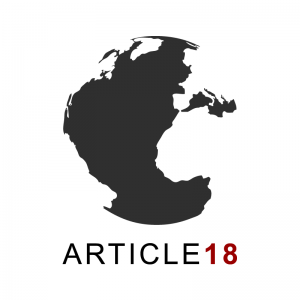By Martin Surridge – Quietly making news this week, nestled between the East Coast snow storms and the Arizona shooting, is an event which, if all unfolds as expected, will make history in a corner of the world that has so often been tragically forgotten.  Welcome back to Article18–RLTV’s first weekly blog specifically dedicated to religious liberty issues in other countries around the world. Each week, we will be focusing on a different nation, and the struggles facing its different religious communities. This week: Sudan and specifically the soon-to-be independent nation of Southern Sudan.
Welcome back to Article18–RLTV’s first weekly blog specifically dedicated to religious liberty issues in other countries around the world. Each week, we will be focusing on a different nation, and the struggles facing its different religious communities. This week: Sudan and specifically the soon-to-be independent nation of Southern Sudan.
In north-east Africa, the continent’s largest country is about to be sliced in two. In most respects, the split has been conducted peacefully and with little resistance, especially for a country that in recent years has suffered through civil wars, systematic genocide in Darfur, and numerous other tribal conflicts. The latest news, according to officials in the region on Wednesday, is that the 60% vote threshold needed to secede has been passed with one more day of voting left. The southern referendum on independence has been largely welcomed by the international community, including President Barack Obama and former President Jimmy Carter, and the Sudanese government has even pledged their support–President Omar al-Bashir has promised financial and logistical assistance and says that his government will accept the results of the referendum, whatever the outcome.
Since the days of British occupation, Sudan has been divided between an Arab Muslim north and a African Christian south. This, is you might expect, led to years of tension, hostility, and violence. But for a time, the world’s eyes were fixed on Sudan as a place of hope as Al Jazeera filmmaker Jamie Doran explains,
“It was the giant of Africa: a nation which once represented the greatest hope for peaceful coexistence between Muslim and Christian. That hope is all but gone. The promise of Sudan was just an illusion. [But they] were never given a proper opportunity to interact, which is a genuine tragedy as they could have learned so much from each other.”
In more recent years, attempts by Khartoum to marginalize and even persecute the Christian minority communities in the north, as well as in the south, included the decision to impose Sharia law throughout the nation. While the Comprehensive Peace Agreement (CPA) in 2005, which also set the independence referendum in motion, officially ended this practice, Sudan’s Christian population continued to live under threat from Muslim extremists in the north, including those that played such a devastatingly active role in exacerbating the genocide in Darfur.
So it would appear that a complete separation from the north should put an end to any possible future attempts, short of an illegal invasion, to implement any similar measures in the future. For the time being, Southern Sudan’s Christian communities look to have gained a certain degree of autonomy, religious liberty, and perhaps most importantly, an invaluable sense of safety.
Article18 is a weekly blog written by Martin Surridge, Associate Editor of Religious Liberty TV. Article18 logo and artwork created by Bradley Kenyon.

Sudan is known as the “country of the anarchy” nowadays, so perhaps with the foundation of South Sudan the “whole” country, if one should use that term, could reach the desired peace. However, I am not pretty sure about how peaceful will be the new Islamic country…
Sudan is known as the “country of the anarchy” nowadays, so perhaps with the foundation of South Sudan the “whole” country, if one should use that term, could reach the desired peace. However, I am not pretty sure about how peaceful will be the new Islamic country…
A pretty resounding vote for change – over 90% choosing independance. However no doubt now their will be a powerstruggle between those wanting control over the oil reserves in the south. Hopefully the Sudanese people can show the same unity in building their new nation that they did in creating it.
A pretty resounding vote for change – over 90% choosing independance. However no doubt now their will be a powerstruggle between those wanting control over the oil reserves in the south. Hopefully the Sudanese people can show the same unity in building their new nation that they did in creating it.